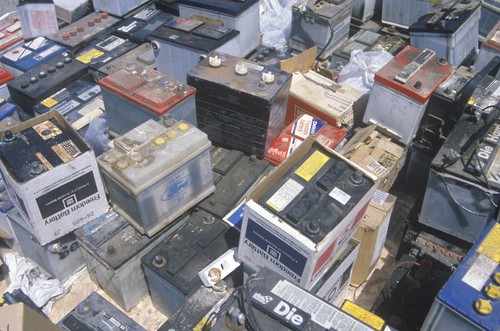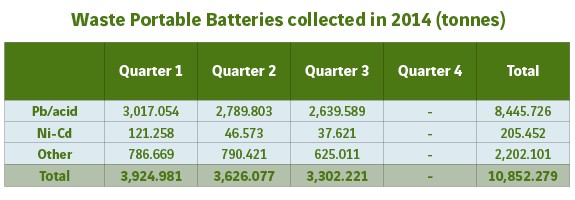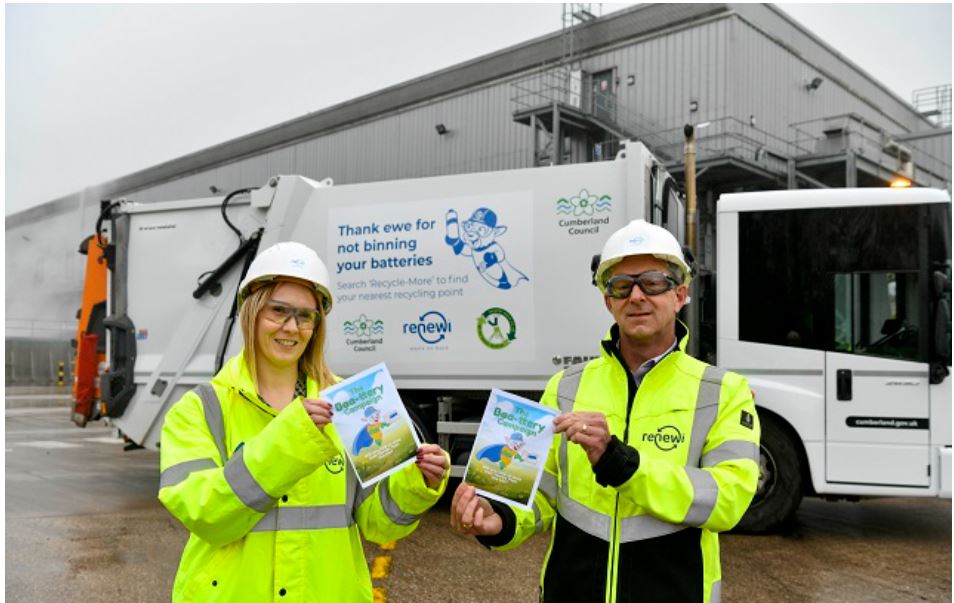The third quarter Portable Battery collection figures, published this week, show that the UK is on track to meet its 35% collection target for 2014, collecting over 10,853 tonnes of waste batteries, over an expected obligation of around 11,800 tonnes.

However, the proportion of lead acid batteries – which are often collected from industrial sources, and as such should not be counted towards the target – still far outweighs the volume of those obligated for collection. Lead acid battery collection volumes are also far greater than for other battery types.
The disparity in collection rates stems from a difference in interpretation between battery recyclers and producers over which lead acid batteries are classified as being ‘portable’ or ‘industrial’ at the beginning and end of life. This has lead to a greater volume of lead acid batteries being collected for recycling than producers are obligated to finance.
Collection data for the July to September 2014 period shows that a total of 2,639 tonnes of lead acid batteries were collected for recycling, while just over 37 tonnes of nickel cadmium and 625 tonnes of ‘other’ batteries were collected.
Tonnages
Despite making up 77% of the overall tonnage collected for recycling, lead acid batteries only amount to around 7% of the new portable batteries placed onto the market throughout the year. But, the latest data does show that the proportion of lead acid batteries being used to meet the target is falling, having made up around 86% of the overall tonnage collected in 2013.
Commenting on the figures, Adrian Hawkes, policy director at compliance scheme Valpak, said: “Not surprisingly the data shows that the UK seems well on track to meet the 35% target for 2014.
“Although the issue of over collection of portable lead acid batteries continues with a reported recycling rate of around 500% so far this year, it is encouraging to see that despite this the collection tonnages of other mixed portable batteries seem to be increasing.
“These look likely to exceed 2,500 tonnes for the first time ever by the end of the year which is good progress, although we continue to believe that changes to the guidance and regulations are necessary to make a further impact.”
Consultation
In order to address the disparity, recyclers are currently waiting for the government to alter the definition of portable waste batteries, in a move that would reduce the number of lead acid batteries that are obligated to be counted towards the recycling target.
A consultation on changing the guidance around the batteries regulations was carried out in 2013, but scrapped after an error in the consultation documents was discovered.
As yet, no date has been set for the consultation to be re-launched, but a spokeswoman from Defra last week confirmed to letsrecycle.com that it is likely to begin ‘before the New Year or shortly after’.
Michael Green, special projects director at battery recycling firm G&P Batteries, said: “Defra has said it is confident that it will be making the changes from January 1, but if the consultation is delayed longer this could mean we are in for a mid year change to the defintions. That would be some resolution to it and we are trying to keep the pressure on Defra.”











Subscribe for free